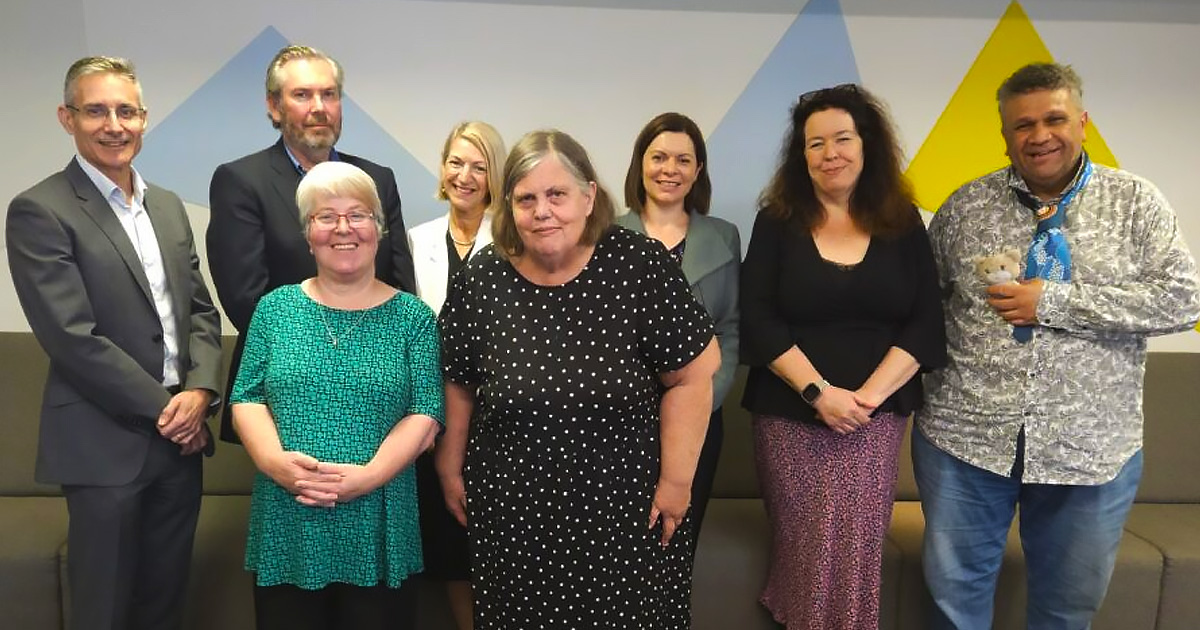
The conference will showcase and expand on the collaborative work of the National Centre of Excellence in Intellectual Disability Health.
The National Centre of Excellence in Intellectual Disability Health’s first annual conference will explore how we can improve health outcomes for people with intellectual disability.
The online conference, on Wednesday 21 and Thursday 22 August, builds on the centre’s work with and for people with intellectual disability to enhance their experience of the health system.
It will offer an ambitious program to explore topics including the evolution of intellectual disability health care, how the centre can embed inclusion both in its own work and in health care more broadly, and the different roles of people and organisations in improving health care for people with intellectual disability.
Nearly half of the presenters and speakers at the conference will be people with intellectual disability, including both MCs.
“This is an opportunity to bring together experts with lived experience, families and carers, health and disability service leaders, clinicians, advocates, government representatives and researchers to showcase what is possible, and plan a future of better health care for people with intellectual disability,” says Centre Director Professor Julian Trollor.
Access to health care is a critical issue
The National Centre of Excellence in Intellectual Disability Health was established in 2023 in response to the significant health disadvantages this marginalised group of people face. Its work is driving powerful collaborations to improve the capability of Australian health services to meet their needs.
The centre’s work has shown that the median age at death for people with intellectual disability is 27 years younger than the general population. People with intellectual disability are dying from potentially avoidable causes at twice the rate in the general population.
These distressing statistics have their origins in lifelong poor access to health care which is not tailored to the needs of this population. A particular problem is lack of access to preventive health care. This results in higher rates of chronic conditions and potentially preventable hospitalisations, which on average are three to four times as common in people with intellectual disability compared to the general population.
Collaborating for change
The National Centre of Excellence in Intellectual Disability Health draws on a network of 65 organisations working together on solutions to these complex health challenges.
Prof. Trollor says: “At its core, the Centre is a very large collaboration, bringing together leaders in health services development, research, advocacy and First Nations disability knowledge, and linking these leadership groups with broader partners in health, disability, regulatory agencies and government.”
People with intellectual disability are directly involved in the centre’s work, co-leading as members of its council and working at an operational level as staff members in project teams.
“The centre is codesigned at its core,” says Prof. Trollor.
“This is a huge strength and ensures all our work values lived experience expertise, and that our products and solutions are relevant to the health needs of those they serve.”
A key project for the centre is The Knowledge Exchange Hub (KEH), which will launch in 2025. This one-stop hub will share information and resources relating to the health needs of people with intellectual disability in Australia. It’s an internationally unique initiative that will help connect people with intellectual disability with the centre and appropriate health services.
The centre is also establishing a cultural model of inclusion to embed perspectives of Aboriginal and Torres Strait Islander peoples and draw on the strengths of their cultures to improve health systems for all.
The centre’s focus includes Aboriginal and Torres Strait Islander people with intellectual disability, those living in rural and remote locations, and people experiencing homelessness or facing mental health and drug and alcohol issues.
Find out more and register for the conference.
Main image caption: Members of the National Centre of Excellence in Intellectual Disability Health Council. L-R: Professor Julian Trollor (Centre Director), Angus Graham, Judy Huett, Eileen Baldry, Donna Best, Jessica Smith, Jaquie Mills, Rhys Nagas.
- Log in to post comments
